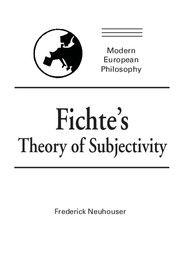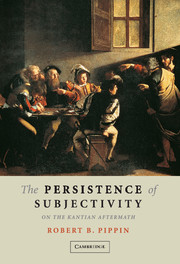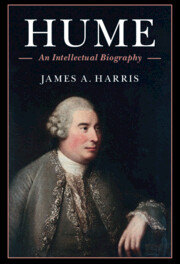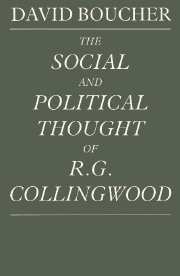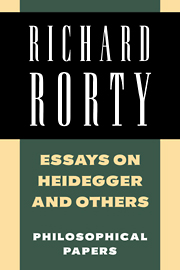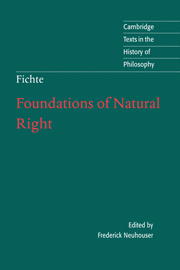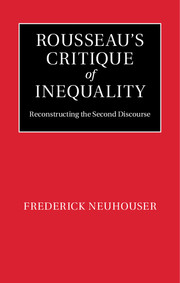Fichte's Theory of Subjectivity
This is the first book in English to elucidate the central issues in the work of Johann Gottlieb Fichte (1762–1814), a figure crucial to the movement of philosophy from Kant to German idealism. The book explains Fichte's notion of subjectivity and how his particular view developed out of Kant's accounts of theoretical and practical reason. Fichte argued that the subject has a self-positing structure which distinguishes it from a thing or an object. Thus, the subject must be understood as an activity rather than a thing and is self-constituting in a way that an object is not. In the final chapter, Professor Neuhouser considers how this doctrine of the self-positing subject enables us to understand the possibility of the self's autonomy, or self-determination.
Reviews & endorsements
'[A] very substantial piece of scholarship which analyses a number of important historical and systematic issues with great clarity and perception. The presentation and treatment of the basic historical and philosophical issues is magisterial.' Raymond Geuss, University of Cambridge
Product details
January 1991Paperback
9780521399388
192 pages
221 × 143 × 13 mm
0.28kg
Available
Table of Contents
- Introduction
- 1. Origins of Fichte's theory
- 2. The developments of Fichte's project from 1792 to 1799
- 3. The self-positing subject and theoretical self-consciousness
- 4. The self-positing subject and practical self-determination
- Conclusion
- Notes
- Bibliography
- Index.

